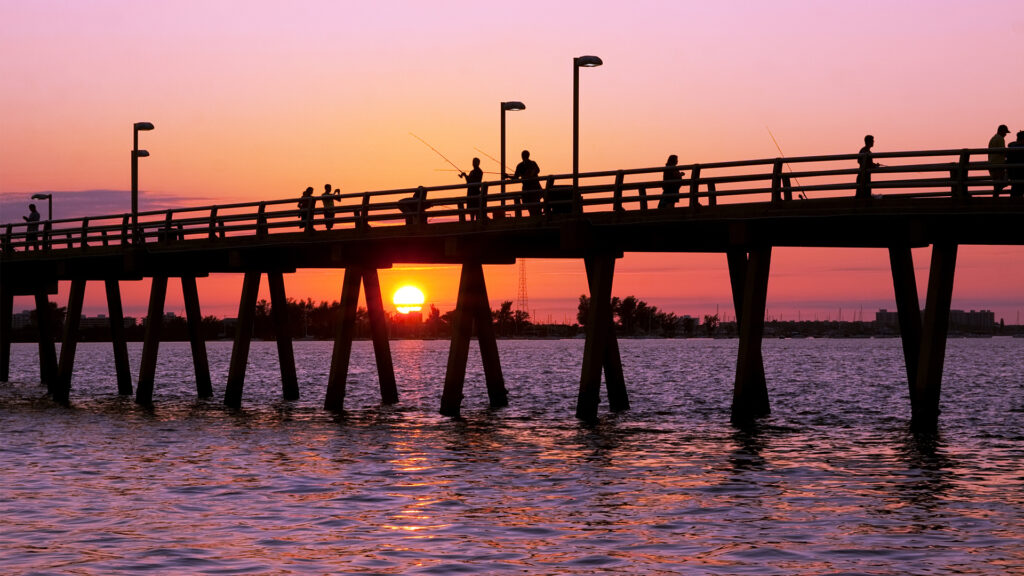By Joseph Bonasia, Florida Rights of Nature Network
Off the Florida Keys, 44 species of fish are swimming in circles until they die. It’s another distressing indicator of the state of our waters, like the looming death spiral of seagrass beds, yearly algae blooms and starving manatees.
Americans very reasonably want clean air, clean water and a healthy environment for themselves and their children. This is not too much to expect of our government, especially after 50 years of Earth Days and the Clean Water Act. But the current regulatory system favors industry and invites unscrupulous behavior, and it allows the degradation of aquatic ecosystems as a matter of course.
Over and over again, folks have tried voting the right people into office and have pleaded with officials to do the right thing environmentally. Because that hasn’t worked, there is a national movement to correct the system by enshrining basic environmental rights in state constitutions. Florida is part of this movement with a proposed “Right to Clean and Healthy Waters” constitutional amendment for the 2026 ballot.

“Clean and healthy waters,” it states, “promote important public interests, including health, prosperity, and quality of life.”
In listing these public interests, such as “safe drinking water; scenic beauty and recreational activities; fishing and harvesting … (and) economic interests and business opportunities,” it emphasizes the paramount importance of clean and healthy waters.
The amendment would “advance these public interests by creating an enforceable, fundamental right to clean and healthy waters.” Not all rights bear equal weight in the eyes of the law. Only a fundamental right can provide the level of protection that such deep and broad public interests require.
We need this level of protection because Florida’s waters are in chronic critical condition.
- The Indian River Lagoon has lost 58% of its seagrass, or 46,000 acres, since 2009.
- Eighty percent of Florida’s 1,000 artesian springs are polluted.
- Nearly 9,000 miles of rivers and streams are contaminated with fecal bacteria.
- Blue-green algae blooms are common and are linked to neurodegenerative diseases.
- Red tides have grown dramatically in frequency, duration, and intensity.
- No state has more acres of polluted lake water than Florida.
- No state has lost more acres of wetlands than Florida — 9.3 million.
Most voters know that special interests have undue influence over environmental policy. Big Sugar, Big Mining and Big Development are notorious examples. Too seldom does science determine policy. Consider why only 13% of the recommendations made by the Blue-Green Algae Task Force have been implemented.
Given the vital importance of clean and healthy waters, the basic legal mechanism of the amendment is utterly fair and sensible.
Because they cannot ignore the people’s fundamental constitutional rights, if state agencies (such as the Department of Environmental Protection) allow harm to Florida waters they must have a compelling state interest for doing so — something somehow more important than clean and healthy waters. Even then, agencies must do all they reasonably can do to limit that harm to no more than what is necessary.
If they don’t, we can take them to court and the court — after weighing the scientific information, not political influence — can make sure they do.
Some people worry that this amendment would lead to a proliferation of lawsuits. It will not. We know this because that hasn’t happened in other states with similar amendments.
Some worry their taxes will go up. There are legal reasons this can’t happen, but I prefer to point out that Floridians are already paying billions in taxes to clean up our polluted waters. Clean water means less taxes, not more.

Some fear the legislature will only undermine the intent and effectiveness of the amendment. With the help of some of Florida’s best environmental lawyers, it has been written to protect against that.
Still others ask, “Don’t we already have enough laws to protect our waters?” If we did, our waters wouldn’t be chronically polluted.
In a 2013 case in Pennsylvania in which the people’s constitutional right to clean water saved citizens from a harmful pro-fracking law, the conservative chief justice of the Pennsylvania Supreme Court took 162 pages to explain the court’s ruling that this law was unconstitutional. He detailed the state’s long history of environmental degradation to make a critical point.
“It is not,” he said, “a historic accident that the Pennsylvania Constitution now places citizens’ environmental rights on par with their political rights.”
When they amended their constitution in 1971, Pennsylvania voters understood that basic environmental rights were just as fundamental as are all Americans’ rights to free speech, freedom of religion, and the right to bear arms. They understood that enshrining these rights in their state constitution was equally essential to good governance.
Floridians expect no less.
Go to FloridaRightToCleanWater.org to sign the petition and get others to sign.
Joseph Bonasia is chair of the Florida Rights of Nature Network.
If you are interested in submitting an opinion piece to The Invading Sea, email Editor Nathan Crabbe at ncrabbe@fau.edu. Sign up for The Invading Sea newsletter by visiting here.




Please sign the petition for this important right to be on our 2026 ballot. You can find the petition at floridarighttocleanwater.org. You must download, print, sign and mail or ask us to mail you one, we will. Thanks so much!
What do we know?
For decades the State of Florida has allowed degradation to occur with failed decisions, failed legislation and lack of regulation. The politicians, regardless of party, will NOT fix this. The headwinds of corporate interests are too strong for those supporting good water policy making; BUT, every voter can stop and sign the Florida’s Right to Clean Water constitutional amendment petition to fix our waters and not a SINGLE politician approval or permission is required.
Your signature has the power to create the right to clean waters for your communities. Accountability and legal standing will change water quality protections in Florida forever.
Take five minutes and with the cost of a stamp you can bring the change needed in 2026.
The petition is AVAILABLE NOW.
Sign it – Share it – Be the Change!
Search on #flrtcw2026 across social media.
Floridarighttocleanwater.org